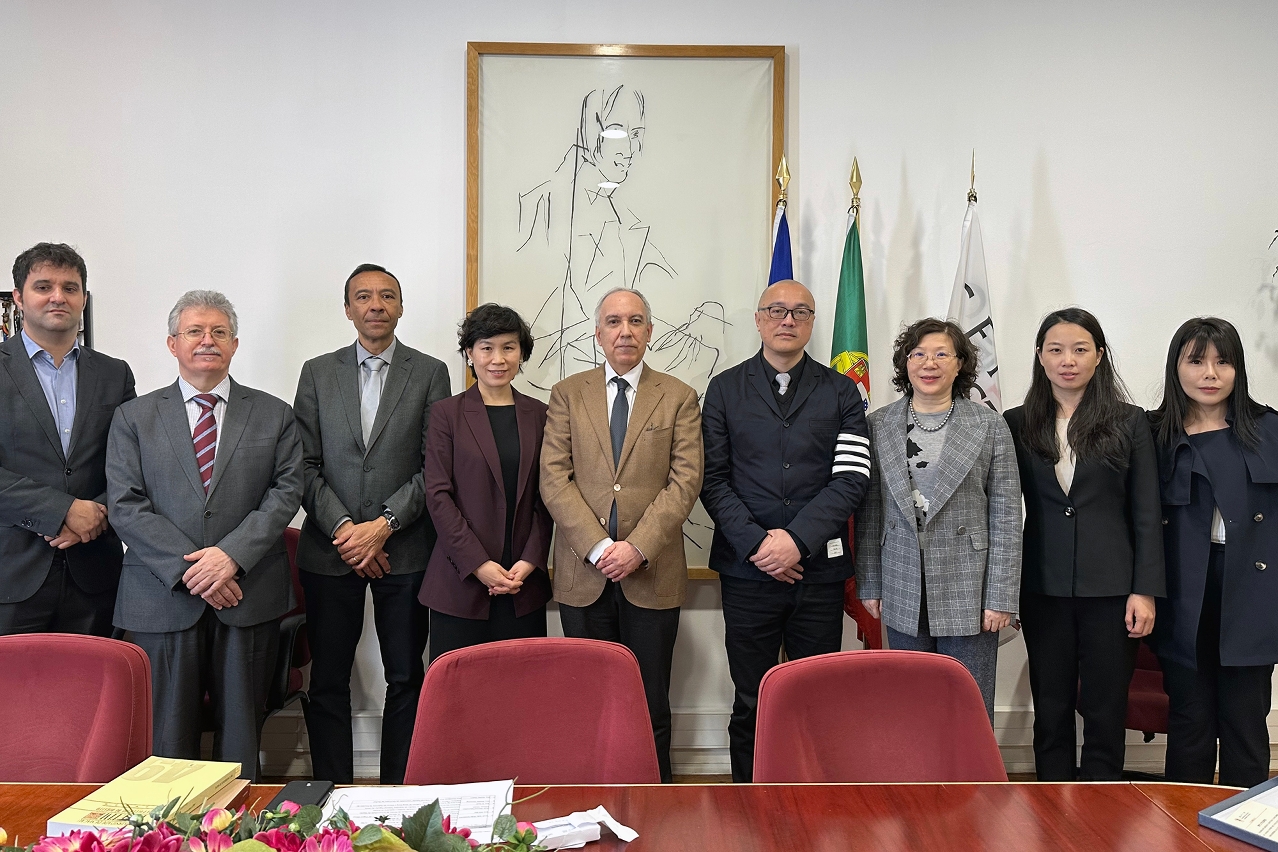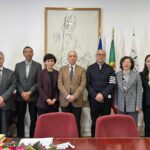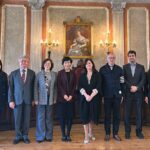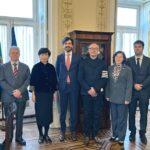 The delegation visits the Centre for Judicial Studies of Portugal
The delegation visits the Centre for Judicial Studies of Portugal
To promote judicial exchanges and cooperation between China and Portuguese-speaking countries, Tong Io Cheng, dean of the Faculty of Law (FLL) at the University of Macau (UM), led a delegation from the Centre for Judicial and Legal Studies of China and Portuguese-Speaking Countries to visit judicial and academic institutions in Portugal and engage in exchanges with Portuguese representatives. All parties agreed that there is ample room for cooperation between China and Portugal in the field of justice and that judicial cooperation between the two sides can be further strengthened by enhancing the exchange of personnel, information sharing, and judicial assistance.
The UM delegation visited the Centre for Judicial Studies of Portugal, the Supreme Court of Portugal, the Portuguese Bar Association, the Public Prosecution Service of Portugal, the Constitutional Court of Portugal, the Court of Appeal of Coimbra, and the Civil and Criminal Courts of Coimbra. During the visit, the delegation had in-depth discussions with the Portuguese judicial institutions on the judicial systems of China and Portuguese-speaking countries and ways of strengthening cooperation.
The delegation also visited the Faculty of Law of the Catholic University of Portugal (Lisbon Campus), the Faculty of Law of the NOVA University Lisbon, the Faculty of Law of the University of Lisbon, the University of Coimbra and its Faculty of Law, the Sino-Lusophone Academy of the University of Coimbra, the University of Minho and its School of Law, and the University of Porto and its Faculty of Law. Tong Io Cheng said that higher education institutions in Portuguese-speaking countries are important partners of UM, and FLL has maintained close relations with them to establish a mature student exchange mechanism and strengthen cooperation in academic research with the aim of cultivating high-level and top-notch talent.
The Centre for Judicial and Legal Studies of China and Portuguese-Speaking Countries is jointly established by UM and the Supreme People’s Court of China. Members of the delegation also included Si Yanli, deputy director general of the Research Office of the Supreme People’s Court of China; Zhang Xinmeng, director of the Hong Kong and Macao Judicial Affairs Office of the Research Office of the Supreme People’s Court of China; Wang Zhibin, executive vice-president of the Intermediate People’s Court of Zhuhai Municipality; Manuel Trigo, director of the Centre for Law Studies of FLL; and João Ilhão Moreira and Ma Zhe, associate directors of the Centre for Judicial and Legal Studies of China and Portuguese-Speaking Countries of FLL.
The Centre for Judicial and Legal Studies of China and Portuguese-Speaking Countries receives guidance from the Research Office and the Bureau of International Cooperation of the Supreme People’s Court of China regarding its development direction and strategy, while FLL is responsible for its daily operation. The major pursuits of the centre include the study and promotion of the legislation, judicial practice and legal culture of China, the study and introduction of the legislation, judicial practice, and legal culture of Portuguese-speaking countries, the cultivation of international legal professionals, the ascertainment of the laws of Portuguese-speaking countries, and the development of databases of Chinese and Portuguese laws, cases and legal information. Since its establishment, the centre has remained committed to upholding a strong sense of responsibility and mission and deepening exchanges and cooperation in the judicial and legal fields between China and Portugal. It has also achieved fruitful results just half a year after its establishment, which the Supreme People’s Court leaders highly recognised. This fully demonstrates its outstanding achievements in facilitating judicial exchanges and cooperation between China and Portuguese-speaking countries.




